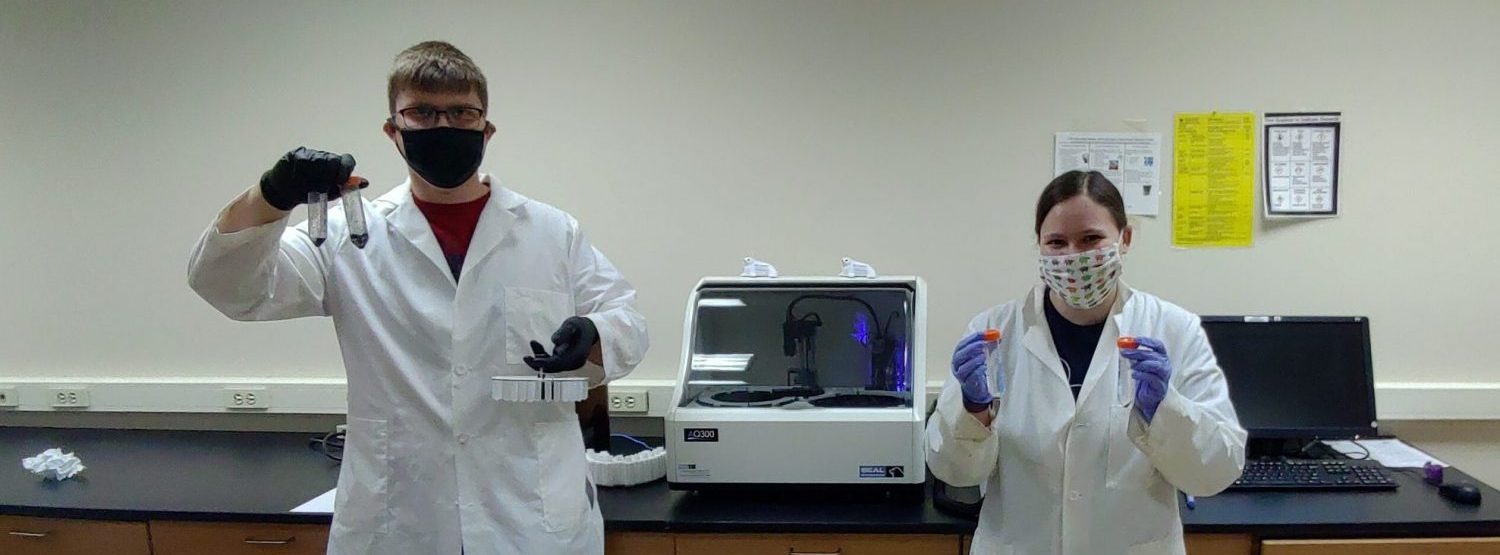“It’s pretty much a Brita filter,” says University of Wisconsin-Green Bay assistant professor Michael Holly. Make that a very big Brita filter: “We’re trying to clean up the water in northeastern Wisconsin.”
The material Holly hopes to identify one day, like the familiar consumer product he likens it to, could improve water quality for entire ecosystems and the communities around them. Assisted by colleagues at UW-Madison, Holly and his team of undergraduate students are looking for a filter to remove excess phosphorus in agricultural runoff before it fouls local waterways.
And not just any filter will do. His ultimate goal is to find material that’s economical, locally available, reusable and also easy for a farmer to install and maintain as an edge-of-field treatment.
It’s a tall order, and Holly says his team is just getting started.
“In trying to reach the ‘lightbulb’ stage, we’re still looking for the filaments,” he quips. “What material works, what won’t? Will the material leach? How do we regenerate the material (to use again?)”
With a trio of undergraduates, Holly has conducted early tests on materials such as zeolite — mineral compounds sometimes found in air purifiers — and charcoal made from community garden plant waste.
He credits the Freshwater Collaborative of Wisconsin’s support for getting the project rolling, with preliminary results expected in 2021.
“The Freshwater Collaborative provides support for projects that might not get funded by larger sources,” says Holly. “It also provides opportunities for students.”
He hopes the current exploratory project will lead to larger proposals and opportunities for more than a dozen students to learn high-quality R&D testing methods, preparing them for a wide range of work in industry, academia and other fields.

